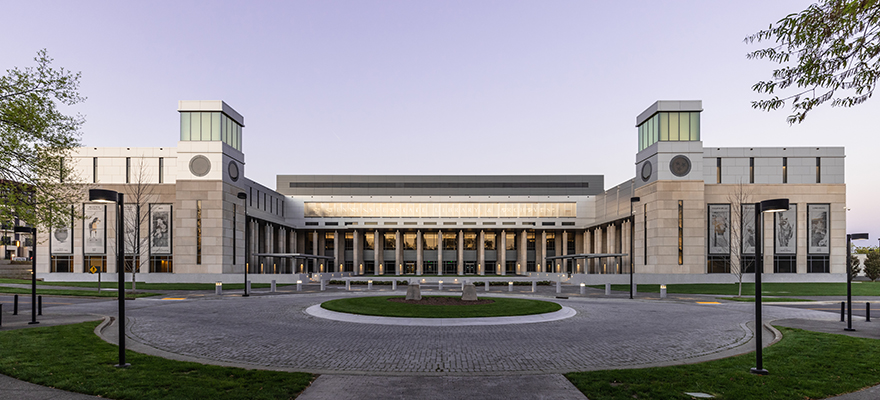What remains of a life lived? A cigar, a ticket stub, a well-worn letter? What stories might these possessions tell of our families, our homes and our life’s work? Explore these questions and more with the Tennessee State Library and Archives’ recently processed Price-Gay Family Papers. Originating from Andrew Price (1854-1909) and his wife Anna Gay (1855-1939), these materials consist of documents, photographs, and artifacts that capture family life, real estate matters, and politics in the United States for the years 1822 to 1944.
 |
| Martha and Edward at Clover Bottom Mansion, Donelson, Tenn., 1899 August. Price-Gay Family Papers, 1822-1944, Box 18, Folder 7 Tennessee State Library and Archives |
Much of the collection concerns Acadia Plantation, the Prices’ sugar plantation in Lafourche Parish, Louisiana. These materials include several photographs of the interior of the plantation house as well as numerous photographs of the exterior and interior of the sugar refinery on-site.
Other contents relate to Clover Bottom Farm in Donelson, Tennessee, where Andrew Price bred, raised and trained trotting horses. Here researchers will uncover a number of studbooks, sale records, clippings, and a scrapbook on the subject. Also included are photographs that provide a rare look at the sprawling estate and the staff who made it thrive.
 |
| Brochure for dispersal sale of trotting horses at Clover Bottom Farm, 1909 May 12. Price-Gay Family Papers, 1822-1944, Box 11, Folder 17 Tennessee State Library and Archives |
 |
| Season admission ticket books to the Tennessee Centennial Exposition for Anna Gay Price, 1897. Price-Gay Family Papers, 1822-1944, Box 1, Folder 3 Tennessee State Library and Archives |
 |
| Parlor at Clover Bottom Mansion, Donelson, Tenn., 1918 May 14. Price-Gay Family Papers, 1822-1944, Box 18, Folder 5 Tennessee State Library and Archives |
 |
| Edward Hill and "Dewey" at Clover Bottom Mansion, Donelson, Tenn., 1898 December 11. Price-Gay Family Papers, 1822-1944, Box 18, Folder 7 Tennessee State Library and Archives |
In addition to his horse breeding operation, Andrew Price served as a U.S. Representative from 1889-1898. Two "goldbug" pins from William McKinley's presidential inauguration in 1897 will transport researchers to this tumultuous period in American politics, when Price joined other conservative Democrats to defend the gold standard against the rising tide of Silver Populists.
Perhaps most intriguing, however, is the human drama of personal relationships revealed in the collection’s correspondence. If Anna Gay were here in the present, she would tell you that before her engagement to Mr. Price in 1878, she had many admirers (and the receipts to prove it). All of the correspondence written between 1873 and 1878 either came from prospective suitors or her girlfriends discussing her suitors. Other documents in the collection relay the goings on of a typical 19th century family and the scandals of its black sheep.
We welcome you to visit the Tennessee State Library and Archives to research this rich source of historical materials. We hope to digitize parts of the collection for inclusion in the Tennessee Virtual Archive and will announce their online availability at a later date. For more information on the contents of this collection, please see our finding aid here.
The Tennessee State Library and Archives is a division of the Office of Tennessee Secretary of State Tre Hargett










